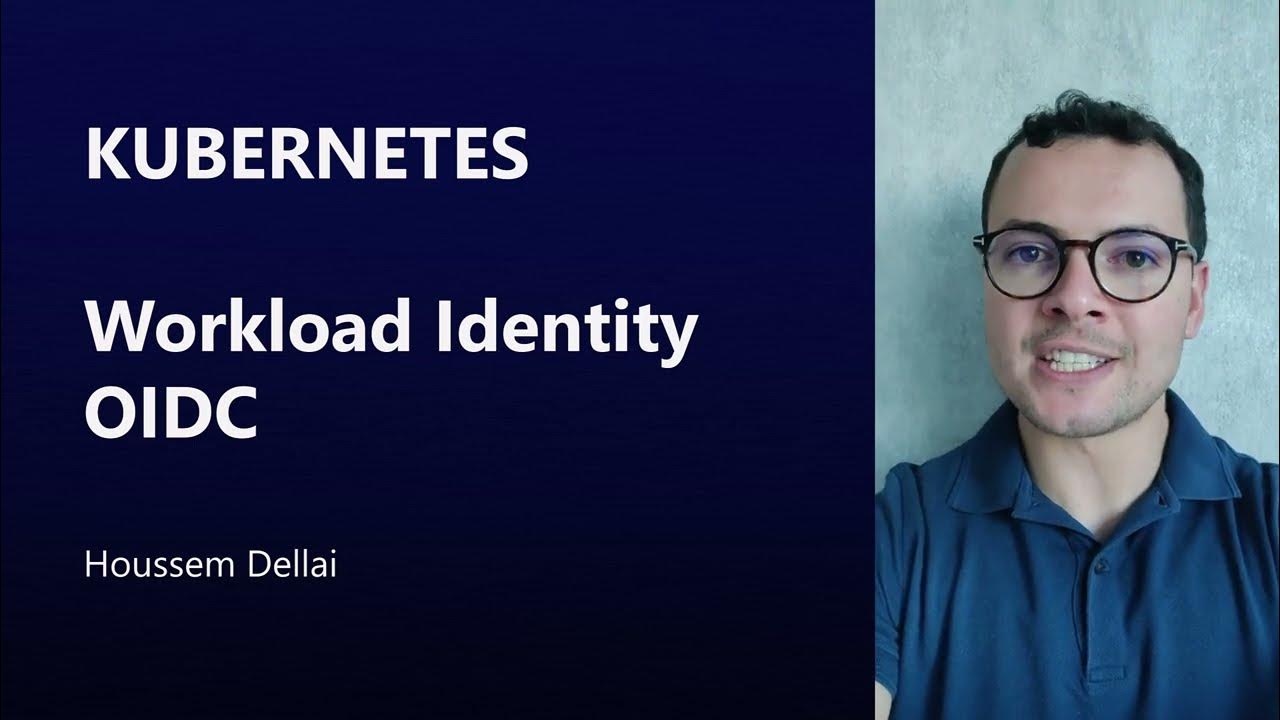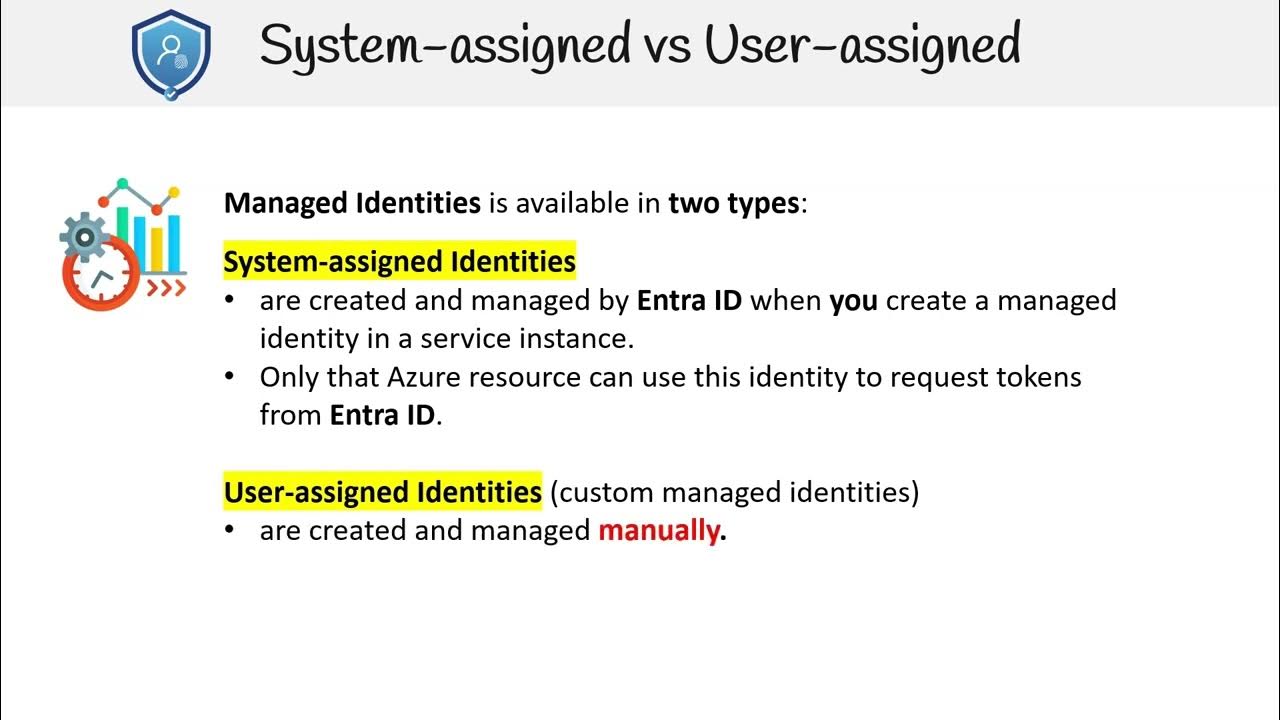AZ 104 — External Identities
Summary
TLDRAzure AD external identities enable external users, such as partners, vendors, and customers, to access applications and resources using their preferred identities (e.g., Google or Facebook). This system supports Business-to-Business (B2B) scenarios, allowing the sharing of apps with external users. Additionally, Azure AD offers flexibility for app developers by supporting both single-tenant and multi-tenant models. For consumer-facing apps, Azure AD B2C provides a white-label solution, making it ideal for a wide range of business and customer applications.
Takeaways
- 😀 External Identities in Azure AD allow people outside your organization to access your apps and resources.
- 😀 External users can use their own identities like Google, Facebook, or other providers to sign in.
- 😀 This feature supports external collaborators such as partners, distributors, suppliers, vendors, and guests.
- 😀 With Azure AD, you can share apps with external users, enabling Business-to-Business (B2B) collaboration.
- 😀 Azure AD also supports the development of apps for both single-tenant and multi-tenant environments.
- 😀 Azure AD B2C (Business-to-Consumer) allows you to develop apps for consumers and customers.
- 😀 Consumers can sign in to apps using their preferred external identity provider (e.g., Google or Facebook).
- 😀 You can develop white-label apps targeted at consumers, offering a seamless sign-in experience via external identities.
- 😀 Azure AD's external identity features provide flexibility for different types of user access—whether for businesses or consumers.
- 😀 Developers can leverage Azure AD to create apps that cater to both internal and external user needs, enhancing collaboration and engagement.
Q & A
What are external identities in Azure AD?
-External identities in Azure AD allow individuals outside your organization, such as partners, vendors, or suppliers, to access your apps and resources. These external users can sign in using their own preferred identities, such as Google or Facebook.
How does Azure AD support B2B scenarios?
-Azure AD supports B2B (Business-to-Business) scenarios by enabling organizations to share apps with external users, allowing partners, distributors, suppliers, and other guests to use their own identities for authentication.
Can external users use identities from platforms like Google or Facebook in Azure AD?
-Yes, external users can sign in using their existing identities from platforms like Google or Facebook, making it easier for them to access the organization's apps and resources.
What is the significance of developing multi-tenant or singleton apps in Azure AD?
-Developing multi-tenant or singleton apps in Azure AD allows organizations to build apps intended for different Azure AD tenants, giving them the flexibility to create solutions for either a single tenant or multiple tenants.
What is Azure AD B2C, and how is it different from regular Azure AD?
-Azure AD B2C (Business-to-Consumer) is a service that allows developers to create apps for consumers and customers, allowing them to sign in using various identity providers like social accounts (Google, Facebook, etc.) or local accounts, unlike regular Azure AD which is used for organizational users.
Who can benefit from using Azure AD's external identities feature?
-External identities in Azure AD benefit organizations that need to provide access to their resources for external individuals like partners, vendors, suppliers, or customers, offering a seamless sign-in experience using identities they already have.
What is a white-label app in the context of Azure AD?
-A white-label app is a custom application developed for consumers or customers, where the branding and design can be customized. In the context of Azure AD, this could be a B2C app where the app is branded for the organization but allows users to authenticate using their own preferred identities.
Can you explain the difference between Azure AD and Azure AD B2C?
-Azure AD is primarily used for managing organizational identities, offering services like user authentication and access management for employees and internal resources. Azure AD B2C, on the other hand, is focused on managing consumer identities, providing authentication for external customers and users from various identity providers.
What does the term 'tenant' refer to in the context of Azure AD?
-In Azure AD, a 'tenant' refers to a dedicated instance of the Azure Active Directory service that an organization or company uses to manage users, apps, and resources. Tenants can be either single or multi-tenant based on the organization’s needs.
What is the benefit of allowing external users to bring their own identities in Azure AD?
-Allowing external users to bring their own identities simplifies the authentication process, reduces the need for creating and managing new user accounts, and improves security by leveraging trusted identity providers like Google or Facebook.
Outlines

此内容仅限付费用户访问。 请升级后访问。
立即升级Mindmap

此内容仅限付费用户访问。 请升级后访问。
立即升级Keywords

此内容仅限付费用户访问。 请升级后访问。
立即升级Highlights

此内容仅限付费用户访问。 请升级后访问。
立即升级Transcripts

此内容仅限付费用户访问。 请升级后访问。
立即升级5.0 / 5 (0 votes)






